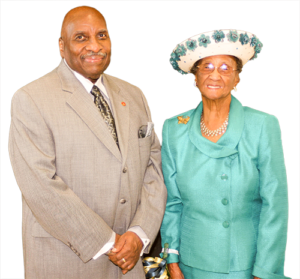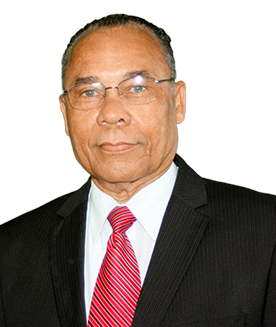John’s Final Testimony
[PRINT HERE] John 3 (2-22-17) Lecture Notes
St. Joseph Missionary Baptist Church
Wed Night Bible Study
JOHN 3:22-30
Dr. E.C. Gregory, PhD – Bible Facilitator 1-25-17 Dr. H.T. Rhim, Pastor
JOHN’S FINAL TESTIMONY
John 3:22-30 (KJV)
22 After these things came Jesus and his disciples into the land of Judaea; and there he tarried with them, and baptized.
23 And John also was baptizing in Aenon near to Salim, because there was much water there: and they came, and were baptized.
24 For John was not yet cast into prison.
25 Then there arose a question between some of John’s disciples and the Jews about purifying.
26 And they came unto John, and said unto him, Rabbi, he that was with thee beyond Jordan, to whom thou barest witness, behold, the same baptizeth, and all men come to him.
27 John answered and said, A man can receive nothing, except it be given him from heaven.
28 Ye yourselves bear me witness, that I said, I am not the Christ, but that I am sent before him.
29 He that hath the bride is the bridegroom: but the friend of the bridegroom, which standeth and heareth him, rejoiceth greatly because of the bridegroom’s voice: this my joy therefore is fulfilled.
30 He must increase, but I must decrease.
3:22-24. For a short time the ministry of John the Baptist overlapped Jesus’ ministry. Thus the Judean countryside must have been alive with the teaching of both these great preachers of repentance and God’s kingdom. Both John and Jesushad disciples, large crowds followed both of them, and both baptized. The statement that Jesus “baptized” (vv. 22, 26) probably means He was overseeing the baptizing done by His disciples (4:2).
3:25. The zealous disciples of John the Baptist found themselves at a disadvantage in an argument. A certain Jew asked why he should join John’s group. He (and others; cf. “They” in v. 26) argued about ceremonial washing. Since there were Essene baptisms and Pharisaic washings, why should Jews follow another washing, John’s baptism?
3:26. John’s disciples may have been angry and jealous. (They were interested in John’s movement and were not committed to Jesus.) They complained that Jesus, of whom John had testified, had now captured the nation’s attention. They longed for the former days when everyone went to hear John (Mark 1:5).
3:27. John’s greatness is revealed in his reply. He said, A man can receive only what is given him from heaven. If Jesus’ movement was expanding, then it must have been in the will of God. This principle of God’s sovereignty is stressed in John (cf. 6:65; 19:11) as well as elsewhere in the New Testament (e.g., 1 Cor. 4:7).
3:28. John also reminded his disciples that they were forgetting part of his teaching. For he had clearly taught that he was not the promised Messiah but was only sent ahead by God to do a work of preparation for the Messiah (1:8, 15, 20, 23).
3:29-30. In Jesus’ growing influence, John found his own joy fulfilled. The friend of the bridegroom was only an assistant, not the main participant in the marriage. The assistant acted on behalf of the bridegroom and made the preliminary arrangements for the ceremony. His joy came when he heard the bridegroom coming for his bride. John the Baptist’s work was to prepare for the arrival of Christ, the “Groom.” John baptized only with water, not with the Spirit. Therefore Jesus must become greater and John must become less. John willingly and with joy accepted Jesus’ growing popularity as God’s plan.





